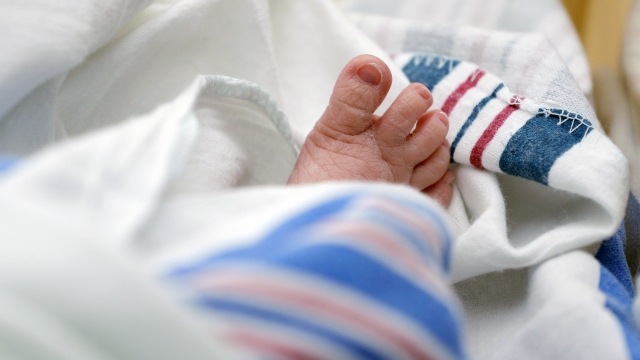Amid a shortage of a highly sought-after and brand-new vaccine, President Joe Biden's administration has expedited shipment of an additional 75,000 doses.
Senior officials told Scripps News exclusively that they are expecting the shipment to help meet the demand that led to fear and frustration among parents nationwide.
This past August and early September the CDC made the announcement that the vaccine for respiratory syncytial virus (RSV), which kills up to 300 children under 5 every year, would be available for babies and toddlers. This shot would be the third shot in line behind the COVID and flu vaccines.
During a media call in August, CDC Director Dr. Mandy Cohen celebrated the new vaccine as "a powerful tool."
"We have more tools than ever before and we have vaccines for all three major fall and winter respiratory viruses again. COVID, flu and for the first time we have an RSV vaccine for older adults and an RSV immunization for our infants," she said.
The new drug, called Beyfortus, uses a monoclonal antibody for protection and comes in different doses — 50 mg for infants under 11 pounds and a 100 mg for those over.
There is a separate vaccine, Pfizer's Abrysvo, that is recommended for pregnant people during weeks 32 through 36 of pregnancy.
However, as the nation entered peak season, the version of Beyfortus for older infants became nearly impossible to find. The new immunization has been shown to reduce the risk of hospitalizations in infants by about 80%.
The CDC told Scripps News they first became aware of the shortage in October.
SEE MORE: Gathering for Thanksgiving? Now is best time to get COVID, flu shots
"As soon as CDC first became aware of the limited supply, we jumped on the problem. We started chatting with manufacturers to determine what the supply looked like, and whether we could get more," said Dr. Nirav Shah, principal deputy director of the CDC.
On Oct. 23, the CDC had released a health alert that prioritized vulnerable children amid the short supply.
"We wish that there was more of the drug out there, and we wish that the manufacturers had made more of it at the beginning of the season right now, rather than metering it out throughout the season, which is really more of the strategy that they're following," Dr. Shah explained, noting the CDC was only told of the shortage while trying to order more of the supply themselves for its Vaccines For Children program.
"As to the specifics of the supply chain and their market projections, those are questions that Sanofi and AstraZeneca are in a better position to discuss," he added.
In a statement to Scripps News, Sanofi wrote that the "demand for this product, in both the 50 and 100 mg doses, has been higher than anticipated."
"We previously communicated that new orders for the 100 mg dose were no longer being accepted, as the demand exceeded the available supply for the season," a spokesman said.
AstraZeneca told Scripps the demand "far surpassed any previous standard."
Both companies said they were working with the CDC to accelerate delivery of additional doses.
Trending stories at Scrippsnews.com



